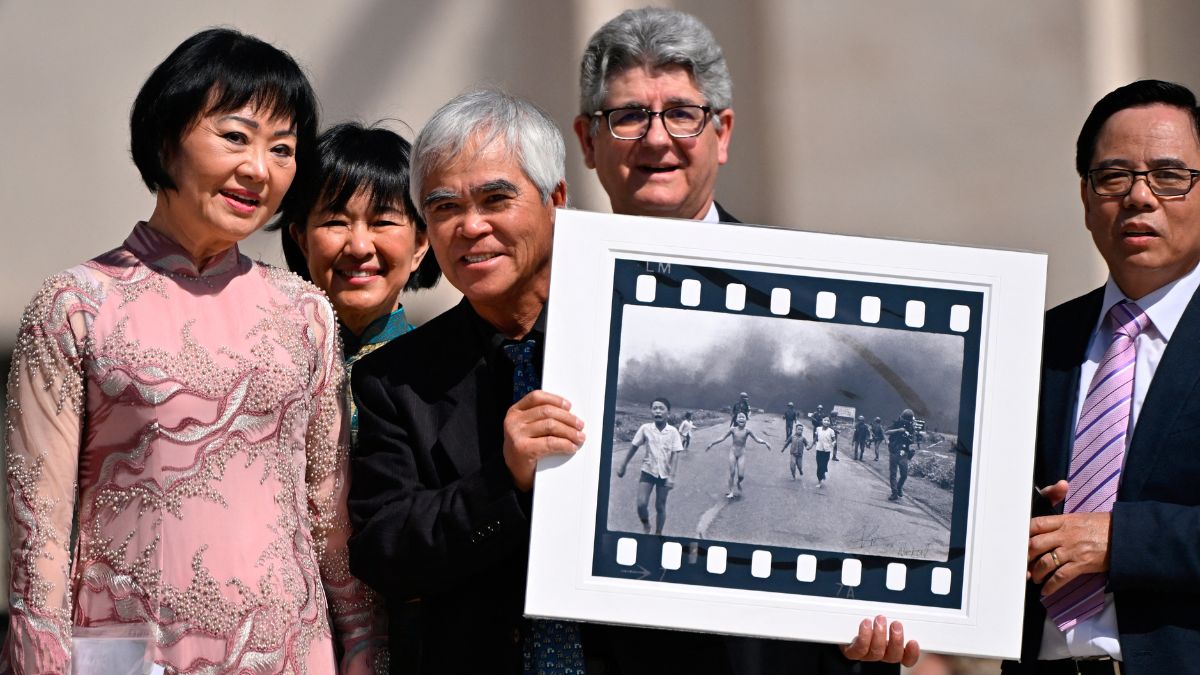On June 8, 1972, a powerful photograph was taken that later became one of the most well-known anti-war images of the 20th century.
The image, officially named “The Terror of War,” is better remembered by the nickname “Napalm Girl,” referring to the nine-year-old girl at the centre, seen running naked and severely burned.
Also on this day in 1949, George Orwell’s novel ‘Nineteen Eighty-Four’ was released. Its character “Big Brother,” a symbol of constant surveillance and strict government control, became a lasting reference in political conversations around the world.
Further, Air India launched its first international flight on this day in 1948. The journey was from Mumbai to London.
If you are a history geek who loves to learn about important events from the past, Firstpost Explainers’ ongoing series, History Today, is your one-stop destination to explore key events.
Let’s take a look at these events:
‘Napalm Girl’ photo was clicked
A haunting photograph of children running from a napalm strike became one of the most powerful images not only of the Vietnam War, but of the entire 20th century.
It was on this day in 1972 that the picture of a terrified, naked child fleeing a napalm attack during the war was taken.
The photograph, shot on June 8 near the village of Trang Bang, showed the horror and chaos of a conflict that, by some estimates, killed over a million civilians.
The child at the centre of the image, later known worldwide as the “ Napalm Girl ,” is Phan Thi Kim Phuc.
Now 59, she lives in Canada and has served as a Unesco Goodwill Ambassador since 1994, advocating for children impacted by war.
Impact Shorts
More ShortsOn the day the image was captured, South Vietnamese troops were trying to retake Trang Bang from communist forces.
After days of clashes, the South Vietnamese air force sent Skyraider planes to bomb what they believed were enemy targets. But civilians, including Kim Phuc and her family, were still inside a nearby Buddhist temple.
When napalm bombs were dropped, panic spread. Kim Phuc, her clothes burning, tore them off and ran towards Route 1. Associated Press (AP) Photographer Nick Ut and other journalists were already waiting near the village, expecting fresh fighting.
The photo quickly became a powerful reminder of the war’s toll on civilians and helped spark global protests against the conflict.
George Orwell’s ‘Nineteen Eighty-Four’ was released
On this day in 1949, George Orwell’s ‘Nineteen Eighty-Four’ was published as a powerful warning about the dangers of totalitarian rule.
The novel left a strong mark on readers with its bleak view of a future where citizens are watched constantly, and free thought is crushed by state control.
Concepts like Big Brother and the Thought Police are now widely used to describe threats to privacy and personal freedom.
‘Who controls the past controls the future. Who controls the present controls the past.’
— Penguin Books UK (@PenguinUKBooks) June 8, 2019
George Orwell's dystopian masterpiece Nineteen Eighty Four was published #onthisday in 1949, but did you know it was nearly titled The Last Man in Europe? https://t.co/kFSR858Fuf pic.twitter.com/7IWPWstMO2
Orwell wrote the book after reflecting on the rise of both Nazism and Stalinism. The story paints a grim picture of a society where thinking differently leads to torture, constant surveillance is the norm, and government propaganda overrides truth.
It brought Orwell lasting fame, with its portrayal of a world where language is manipulated and dissent is punished, serving as a lasting reminder of the dangers of unchecked power.
When Air India’s first international flight took off
On this day in 1948, Air India launched its first international flight from Mumbai (then Bombay) to London, with stops in Cairo and Geneva.
The flight departed on June 8 and reached London on June 10, carrying 35 passengers. Among them were JRD Tata and Nawab Amir Ali Khan of Jamnagar.
The journey was flown by Captain KR Guzdar in a 40-seater Lockheed Martin L-749 Constellation aircraft. The plane was named Malabar Princess.
Though Air India already had domestic flying experience, international operations required extra planning. Special staff were appointed, new teams were hired, and offices were opened in Cairo, Geneva, and London to support the route.
This Day, That Year
632: Prophet Muhammad, the founder of Islam and the Muslim community, died in Medina.
1867: Franz Joseph was crowned King of Hungary.
1936: The Indian State Broadcasting Service was officially renamed All India Radio.
2002: Serena Williams won her first French Open title by defeating her sister Venus Williams in the final.
2009: The United Nations observed World Oceans Day for the first time.


)

)
)
)
)
)
)
)
)



